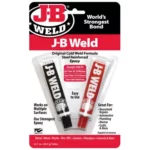Gloves are a common protective tool, especially in industries that require hygiene and safety, like the food industry. Among various types, Nitrile gloves have gained significant popularity due to their strong chemical resistance and durability. Harbor Freight, a renowned retail company, is known for its range of Nitrile gloves, which are often employed for various applications.
Harbor Freight Nitrile gloves, lauded for their strength and comfort, are frequently utilized across many sectors. However, when it comes to food handling, a vital question arises: Are these gloves safe to use? The short answer is, it depends. Although Nitrile is a safe material, food safety relies on other factors such as quality, certification, and proper usage.
Food safety is a paramount concern that everyone involved in food handling and preparation must consider. Using the right kind of gloves, like those made of Nitrile, can prevent cross-contamination and ensure hygiene. However, not all Nitrile gloves are created equal, which is where Harbor Freight gloves come into play.
Food Safety and Gloves
Role of Gloves in Food Safety
Gloves act as a barrier between bare hands and food, preventing the transfer of harmful microbes. They also protect workers from hot surfaces, sharp objects, and potential allergens. In addition to hygiene, gloves can enhance grip, making food handling easier and safer.
Requirements for Food-Safe Gloves
For a glove to be deemed food-safe, it should meet certain criteria. It must be made of materials recognized as safe by health authorities, be easy to put on and take off, be resistant to tear and puncture, and not impart any odor or taste to the food. Above all, it should have the necessary certifications proving its safety for food contact.
Are Nitrile Gloves Generally Food Safe?
Material Composition of Nitrile Gloves
Nitrile, a form of synthetic rubber, is a popular choice for glove manufacturing due to its resilience and chemical resistance. These gloves are made by a process known as coagulant dipping, which involves several complex steps, including preparation, coagulation, leaching, and vulcanization. This process gives Nitrile gloves their signature properties such as flexibility, dexterity, and robustness.
Key aspects of Nitrile gloves include:
- Chemical Resistance: Nitrile gloves have superior resistance to oils, fats, and chemicals, which make them useful in environments where these substances are prevalent, such as food preparation areas and chemical labs.
- Durability: They are more durable and resistant to punctures than other types of gloves like latex and vinyl. This feature makes them a favorite in industries that require tough and long-lasting gloves.
- Allergy Safe: Unlike latex gloves, Nitrile gloves do not provoke allergic reactions, as they are made of synthetic rubber. This property makes them safer for people with latex allergies.
Certifications and Standards for Food Safety
In terms of food safety, Nitrile gloves have a generally positive reputation. However, to classify any glove as food safe, it must comply with certain regulations and standards. These standards ensure that the gloves are suitable and safe for contact with food.
Key standards include:
- FDA Regulations: In the United States, gloves used in food handling must comply with the guidelines set by the Food and Drug Administration (FDA). FDA compliant gloves have undergone testing to ensure they are safe for food contact.
- European Regulations: In Europe, gloves need to meet the European Regulation (EU) 1935/2004, which mandates that materials in contact with food should not transfer their constituents to food in quantities that could endanger human health.
Analysis of Harbor Freight Nitrile Gloves for Food Safety
Material Quality and Safety Features
Harbor Freight Nitrile gloves are highly regarded for their quality and robustness. They are chemically resistant and highly durable, offering superior protection against punctures and abrasions. They also provide excellent dexterity, making them suitable for tasks that require precision.
Key features include:
- Strength: They are three times more puncture-resistant than latex, providing a higher level of protection to the user.
- Comfort: Harbor Freight Nitrile gloves offer a comfortable fit. They conform to the user’s hand for better dexterity, which is critical in precision tasks.
Any Mentioned Food-Safety Certifications
Despite their high quality, Harbor Freight Nitrile gloves do not explicitly state any food safety certifications on their product details. Although the absence of a stated certification does not necessarily imply the product is not food safe, it does create uncertainty.
Comparisons and Alternatives
Comparing Harbor Freight Nitrile Gloves with Other Brands
When compared to other brands, Harbor Freight Nitrile gloves perform well in terms of durability and comfort. However, some brands clearly state their compliance with food safety certifications, giving them an edge in terms of food handling.
Consider the following brands:
- AMMEX: AMMEX Blue Nitrile Gloves are FDA approved for food service and are also suitable for medical and dental applications.
- Venom Steel: Venom Steel Nitrile Gloves are reputed for their high strength and durability, with explicit food-safety certification.
Possible Alternatives if Harbor Freight Gloves Aren’t Food Safe
If you’re in search of alternatives to Harbor Freight gloves for food handling, consider brands that explicitly state their food safety certification.
Options include:
- Safeguard: Safeguard Nitrile gloves are FDA approved and come in a variety of sizes for a comfortable fit.
- MedPride: MedPride Nitrile gloves are powder-free, latex-free, and suitable for food service.
User Reviews and Experiences
What Users Say about Harbor Freight Nitrile Gloves in Food Handling
User reviews provide valuable insights into a product’s practical performance. However, given that Harbor Freight does not advertise their Nitrile gloves as food-safe, reviews regarding their use in food handling are sparse. Most users seem to use them for general purpose or industrial tasks where the durability of the gloves is a key factor.
Insights from Food Industry Professionals
Professionals working in the food industry stress the importance of using certified food-safe gloves. Harbor Freight Nitrile gloves might offer a high degree of durability and comfort, but without explicit food-safety certification, professionals in the food industry may be hesitant to use them for food handling.
Best Practices for Using Nitrile Gloves in Food Handling
Proper Usage and Handling
Regardless of the type of gloves used, proper usage is crucial to maintain hygiene. Following certain best practices can enhance food safety:
- Always wash hands before wearing gloves and after removing them to prevent the spread of bacteria.
- Change gloves when switching tasks, especially when moving from handling raw foods to ready-to-eat foods.
- Replace gloves immediately after they get damaged or soiled.
When to Replace the Gloves
Knowing when to replace gloves is essential to prevent cross-contamination. Here are some circumstances when gloves should be changed:
- After handling allergenic ingredients: This can prevent allergen cross-contact.
- After handling raw meat or poultry: This can prevent spreading harmful bacteria.
- When gloves show signs of wear and tear: Damaged gloves can expose food to contamination.
Frequently Asked Questions
Are all Nitrile Gloves Food Safe?
Not all Nitrile gloves are safe for food handling. They need to have necessary certifications from recognized health authorities, such as the FDA or EU regulation compliance.
Can Harbor Freight Nitrile Gloves be used for food handling?
While Harbor Freight Nitrile gloves are known for their durability and comfort, they do not explicitly mention any food safety certifications. It is always safer to use gloves that are certified for food contact.
What are some alternatives to Harbor Freight Nitrile Gloves for food handling?
Brands like AMMEX, Venom Steel, Safeguard, and MedPride offer Nitrile gloves that have certifications proving they are safe for food contact.
Conclusion
Nitrile gloves offer several advantages such as chemical resistance and durability, making them a popular choice across industries. Harbor Freight, with its range of Nitrile gloves, provides strong and comfortable options. However, in the absence of explicit food safety certifications, their suitability for food handling remains ambiguous.
Food safety hinges on the use of appropriate tools and practices. While the material of the gloves plays a key role, food safety certifications are crucial. Without explicit certifications, the use of Harbor Freight Nitrile gloves for food handling should be approached with caution.
In a world where food safety is critical, making informed choices is vital. Remember, the goal isn’t just to protect your hands, but also the food you handle. While Harbor Freight Nitrile gloves offer certain advantages, when it comes to food safety, it’s wise to select gloves that meet the standards and certifications required for food contact.







